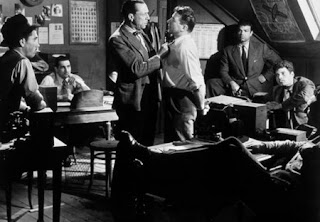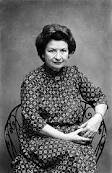Where the dead live
After reading Murakami's Kafka on the shore, I suspect that I fall into the first camp, so don't be too surprised if a future dog is named Haruki! I agree with his critics that he is pretty incomprehensible, even his very greatest fans are going to admit that Kafka does not make a lot of sense, there are some truly cringeworthy sex scenes, a transgender librarian, talking cats, a cat serial killer who is trying to make a flute out of their souls (yeah, exactly how is that going to work?), and a couple of chapters straight out of The X-Files.
 None of this bizarrely actually matters, it is beautifully written, completely crazy, and compels from beginning to end. The Kafka of the title is Kafka Tamura (not his real name) who runs away from home and may (or may not) have murdered his (possibly-)cat-killing father. In search of his lost mother and sister he comes across a small library in Takamatsu that becomes briefly home. Meanwhile as Kafka takes control of the odd-numbered chapters along with his alter-ego Crow (Kafka means Crow in Czech), the even-numbered chapters follow the story of Mr. Nakata, a one-time bright child affected by some paranormal experience. Mr. Nakata lives simply, he restores cats to their owners using his special gift - he can talk to cats. But when Nakata meets Johnnie Walker, the cat killer, his life will change, as he goes on a quest to restore the status quo. What begins as two threads, mesh and then fall apart again in the last third of the story.
None of this bizarrely actually matters, it is beautifully written, completely crazy, and compels from beginning to end. The Kafka of the title is Kafka Tamura (not his real name) who runs away from home and may (or may not) have murdered his (possibly-)cat-killing father. In search of his lost mother and sister he comes across a small library in Takamatsu that becomes briefly home. Meanwhile as Kafka takes control of the odd-numbered chapters along with his alter-ego Crow (Kafka means Crow in Czech), the even-numbered chapters follow the story of Mr. Nakata, a one-time bright child affected by some paranormal experience. Mr. Nakata lives simply, he restores cats to their owners using his special gift - he can talk to cats. But when Nakata meets Johnnie Walker, the cat killer, his life will change, as he goes on a quest to restore the status quo. What begins as two threads, mesh and then fall apart again in the last third of the story.What I think Murakami is trying to put across here is the emphasis on the importance of memory. People die, cats die, people vanish, musicians die, authors die, but beyond any notions of an after-life - perhaps in a heavenly Japanese village guarded by two war-weary soldiers - they do live on in our memories. Music and books are a constant refrain throughout the work, and virtually all are by or performed by dead people; but in a very real sense they are alive. Their thoughts, their passions, their spirit lives while we remember them. And this is the lesson that lonely Kafka learns, and that enriches Hoshino's life, the truck driver who befriends Mr. Nakata.
It's a mad story, but there is something incredibly endearing about it. I can't wait to find my next Murakami.




.jpeg)





Comments